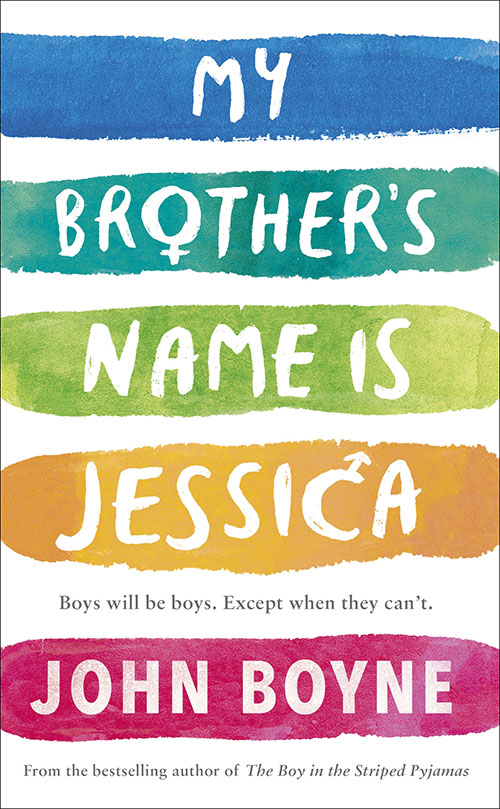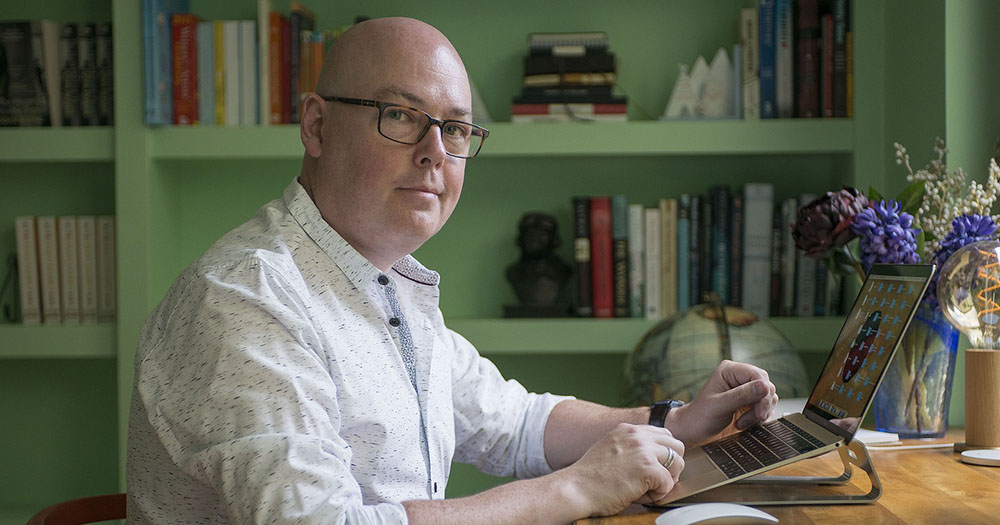Irish author John Boyne, whose new book My Brother’s Name Is Jessica follows a young boy whose brother comes out as a transgender girl, has come under fire from trans activists.
Boyne, best-known for his children’s Holocaust novel The Boy In The Striped Pyjamas, has also authored several books that draw on his experience as a gay man. His 2017 novel, The Heart’s Invisible Furies, offered a moving history of Ireland from the 1940’s to the marriage equality referendum. In his new book – due to be published this Thursday – he steps beyond his own experience to tackle the lives of trans youth.
This step has triggered a storm of criticism on social media. Some trans activists claim that, since Boyne is not trans, the story depicted in My Brother’s Name Is Jessica is not his to write. Others argue that to centre the novel on a cis brother’s struggle to accept his sister is to unfairly prioritise cis experiences over those of trans people themselves.
“John is not trans therefore this isn’t his story to write,” wrote one activist. “When it comes to transitioning, the trans person themselves should be centred. Not their siblings. This perspective has been done countless times already.”
Another wrote “Boycott @john-boyne and his new ‘novel’ ‘My Brother’s Name is Jessica’ in which his transphobic main character PHYSICALLY ASSAULTS a trans woman and this action is never condemned. Disgusting for an LGBT author to throw us under the bus like this. SHAME.”
A third emphasised the importance of trans stories written by trans writers: “Trans people are misrepresented enough in the media. They are writing their own stories.
But another cis person’s take is being lauded as brilliant trans representation, when we can tell, by the title of the book, that it’s not. I’d almost prefer no rep at all.”
Many have taken offence at the novel’s title – which, although written from the perspective of a confused child attached to the idea of his “brother” as a boy, can be interpreted as misgendering its trans subject.
One person wrote “He misgendered the trans person in the title… I think that reflects a lot on what’s going to be in the book,” while another told Boyne “The title of your book is inherently disrespectful and makes it very difficult to start any discourse on polite terms.”
Some have come to Boyne’s defence, protesting that all fiction writers attempt to tell stories from different perspectives and that he should be trusted to have done the necessary research.
“Writers use their imagination. It’s what we do!” says fellow writer Eileen Wharton. “I write from many different perspectives and may not have experienced the things I’m writing about. I speak to people who have experienced those things. I do other research as I’m sure John has done.”
Boyne’s previous commentary on trans issues, however, has increased concern that he may be the wrong man for the job.

John Boyne: “I reject the word ‘cis'”
In an article published on April 13th in The Irish Times, titled “Why I support trans rights but reject the word ‘cis,'” Boyne wrote “it will probably make some unhappy to know that I reject the word ‘cis,’ the term given by transgender people to their nontransgender brethren. I don’t consider myself a cis man; I consider myself a man.”
He went on “while I will happily employ any term that a person feels best defines them, whether that be transgender, non-binary or gender fluid to name but a few, I reject the notion that someone can force an unwanted term onto another.”
What Boyne did not explain is why exactly the term “cis” is unwanted on his part. He respects trans identities and is happy to acknowledge them in his language use – in fact, he wrote in the same article that “I wholeheartedly support the rights of trans men and women and consider them courageous pioneers.” Trans activists have had difficulty, therefore, in understanding why he chooses not to describe himself using an adjective that marks him as not being transgender.
Aoife Martin, a trans woman and director of TENI, has interpreted Boyne’s unwillingness to use the term as a dangerous means of ignoring his cis privilege.
“The only time I refer to people as being cis is when discussing trans issues,” Martin has written in The Irish Times. “This is to distinguish them from transgender and non-binary people.
“In the same way if I were involved in a discussion about, say, Black Lives Matter, I would point out that I am a white person and I am speaking from a position of white privilege. Boyne, whether he likes it or not, is a cis man speaking from a position of cis privilege.”
© 2019 GCN (Gay Community News). All rights reserved.
Support GCN
GCN is a free, vital resource for Ireland’s LGBTQ+ community since 1988.
GCN is a trading name of National LGBT Federation CLG, a registered charity - Charity Number: 20034580.
GCN relies on the generous support of the community and allies to sustain the crucial work that we do. Producing GCN is costly, and, in an industry which has been hugely impacted by rising costs, we need your support to help sustain and grow this vital resource.
Supporting GCN for as little as €1.99 per month will help us continue our work as Ireland’s free, independent LGBTQ+ media.
